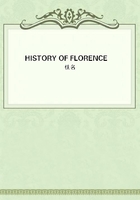
第123章
This being agreed upon, on the twenty-fifth of June, 1445, he attacked Annibale with his men, and slew him: and then, with shouts of "the duke, the duke," rode through the city. The Venetian and Florentine commissaries were in Bologna at the time, and at first kept themselves within doors; but finding that the people, instead of favoring the murderers, assembled in the piazza, armed in great numbers, mourning the death of Annibale, they joined them; and, assembling what forces they could, attacked the Canneschi, soon overpowered them, slew part, and drove the remainder out of the city. Battista, unable to effect his escape, or his enemies his capture, took refuge in a vault of his house, used for storing grain. The friends of the Bentivogli, having sought him all day, and knowing he had not left the city, so terrified his servants, that one of them, a groom, disclosed the place of his concealment, and being drawn forth in complete armor he was slain, his body dragged about the streets, and afterward burned. Thus the duke's authority was sufficient to prompt the enterprise, but his force was not at hand to support it.
The tumults being settled by the death of Battista, and the flight of the Canneschi, Bologna still remained in the greatest confusion. There not being one of the house of Bentivogli of age to govern, Annibale having left but one son whose name was Giovanni, only six years old, it was apprehended that disunion would ensue among the Bentivogli, and cause the return of the Cannecshi, and the ruin both of their own country and party. While in this state of apprehension, Francesco, sometime Count di Poppi, being at Bologna, informed the rulers of the city, that if they wished to be governed by one of the blood of Annibale, he could tell them of one; and related that about twenty years ago, Ercole, cousin of Annibale, being at Poppi, became acquainted with a girl of the castle, of whom was born a son named Santi, whom Ercole, on many occasions acknowledged to be his own, nor could he deny it, for whoever knew him and saw the boy, could not fail to observe the strongest resemblance. The citizens gave credit to the tale, and immediately sent to Florence to see the young man, and procure of Cosmo and Neri permission to return with him to Bologna.
The reputed father of Santi was dead, and he lived under the protection of his uncle, whose name was Antonio da Cascese. Antonio was rich, childless, and a friend of Neri, to whom the matter becoming known, he thought it ought neither to be despised nor too hastily accepted; and that it would be best for Santi and those who had been sent from Bologna, to confer in the presence of Cosmo. They were accordingly introduced, and Santi was not merely honored but adored by them, so greatly were they influenced by the spirit of party. However, nothing was done at the time, except that Cosmo, taking Santi apart, spoke to him thus: "No one can better advise you in this matter than yourself; for you have to take that course to which your own mind prompts you. If you be the son of Ercole Bentivoglio, you will naturally aspire to those pursuits which are proper to your family and worthy of your father; but if you be the son of Agnolo da Cascese, you will remain in Florence, and basely spend the remainder of your days in some branch of the woolen trade." These words greatly influenced the youth, who, though he had at first almost refused to adopt such a course, said, he would submit himself wholly to what Cosmo and Neri should determine. They, assenting to the request of the Bolognese, provided suitable apparel, horses, and servants; and in a few days he was escorted by a numerous cavalcade to Bologna, where the guardianship of Annibale's son and of the city were placed in his hands. He conducted himself so prudently, that although all his ancestors had been slain by their enemies, he lived in peace and died respected by everyone.
After the death of Niccolo Piccinino and the peace of La Marca, Filippo wishing to procure a leader of his forces, secretly negotiated with Ciarpellone, one of the principal captains of Count Francesco, and arrangements having been made, Ciarpellone asked permission to go to Milan to take possession of certain castles which had been given him by Filippo during the late wars. The count suspecting what was in progress, in order to prevent the duke from accommodating himself at his expense, caused Ciarpellone to be arrested, and soon afterward put to death; alleging that he had been detected plotting against him.
Filippo was highly annoyed and indignant, which the Venetians and the Florentines were glad to observe, for their greatest fear was, that the duke and the count should become friends.